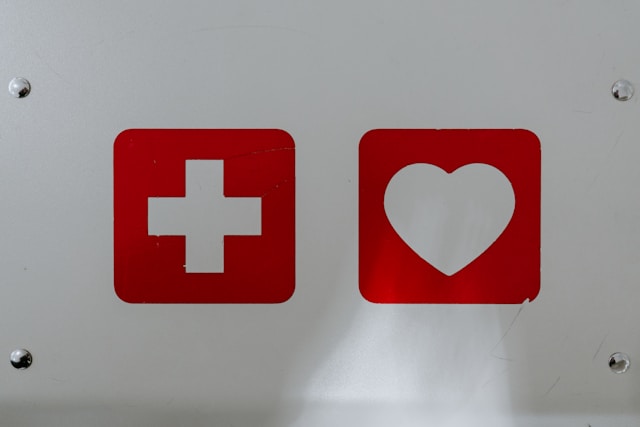Top 7 Health Myths Nigerians Still Believe in 2025
Despite the growing access to medical information, many Nigerians in 2025 still believe and practice outdated or scientifically inaccurate health habits. These myths, often passed down from parents, elders, or community members, can cause more harm than good. In this article, we debunk seven of the most common Nigerian health myths still believed by many people today.
1. Cold Water Causes Cough and Catarrh
This is one of the most widespread beliefs in Nigeria. Many parents warn their children not to drink cold water because they believe it causes cough, catarrh, or sore throat. But the truth is that cold water doesn’t cause respiratory infections. Most coughs and catarrh are caused by viruses or allergens, not the temperature of water. Drinking cold water might slightly irritate a sore throat, but it doesn’t cause the illness itself.
Verdict: False. Cough is caused by viruses, bacteria, or allergens — not cold drinks.
2. Antibiotics Cure Malaria
This myth is dangerous. Many Nigerians still believe that taking antibiotics like Amoxicillin or Flagyl can cure malaria. Some even combine them with antimalarial drugs “just in case.” But malaria is caused by a parasite — Plasmodium — and it requires antimalarial drugs like Artemether-Lumefantrine or Artesunate. Antibiotics are meant for bacterial infections and have no effect on malaria parasites.
Verdict: Completely false. Misusing antibiotics also leads to resistance and harms your health.
3. Sitting on Cold Floors Causes Pile (Hemorrhoids)
Another popular myth is that sitting on bare or cold floors will give you pile (hemorrhoids). But in reality, pile is caused by increased pressure in the rectal veins, often due to straining during bowel movements, chronic constipation, or pregnancy. Sitting on a cold surface does not cause hemorrhoids. However, prolonged sitting in general may worsen existing symptoms.
Verdict: False. Pile is related to bowel habits and pressure, not floor temperature.
4. Using Herbal Mixtures (‘Agbo’) is Safer Than Modern Drugs
Many Nigerians still swear by local herbs or “agbo” for all kinds of illnesses — from typhoid to infertility. While some herbs may contain useful compounds, most are not scientifically tested, properly dosed, or safe. Some herbal mixtures contain harmful ingredients like battery fluid, alcohol, or unknown roots. They can damage your liver, kidneys, or interfere with prescribed medications.
Verdict: Not always safe. Traditional medicine should not replace verified treatment without professional guidance.
5. Malaria and Typhoid Always Come Together
It’s common to hear someone say, “I have malaria and typhoid” in Nigeria. Some people even assume the two are always linked. But the truth is that malaria is caused by a mosquito-borne parasite, while typhoid is caused by a bacteria, Salmonella typhi, often from contaminated food or water. You can have one without the other. Overdiagnosis of typhoid is also common due to unreliable Widal tests.
Verdict: False. They are separate diseases. Get proper tests before combining treatment.
6. Sugar Causes Diabetes
Many Nigerians believe that eating sugar directly causes diabetes. While excess sugar isn’t good for health, diabetes — especially type 2 — is caused by insulin resistance and genetic factors, not just sugar intake. You can develop diabetes even without eating sweets if you have a poor diet, don’t exercise, or have a family history. Similarly, eating sugar doesn’t automatically mean you’ll develop diabetes.
Verdict: False. Sugar intake plays a role, but diabetes is more complex than just eating sweets.
7. Taking Bitters Cleans the Body or Blood
Many Nigerians take “bitters” like herbal drinks or concoctions believing they “clean the blood” or “flush out toxins.” While bitter herbs may have some digestive effects, the idea of “cleaning the blood” is not backed by medical science. The body already has its own detox system — the liver and kidneys. Overuse of bitters can lead to ulcers, kidney problems, and liver damage.
Verdict: False. Your body doesn’t need help “cleaning” blood. Focus on healthy habits instead.
Conclusion: Knowledge is Health
These Nigerian health myths continue to spread because of cultural beliefs, poor access to healthcare, and lack of proper health education. But believing them blindly can lead to misdiagnosis, delayed treatment, or serious health problems. It’s time to separate fact from fiction.
If you’re unsure about any health issue, always speak with a certified healthcare provider. Don’t rely on street advice or social media rumors when your life and health are at stake.
Do you know anyone who still believes one of these myths? Share this article with them — you might save a life.

